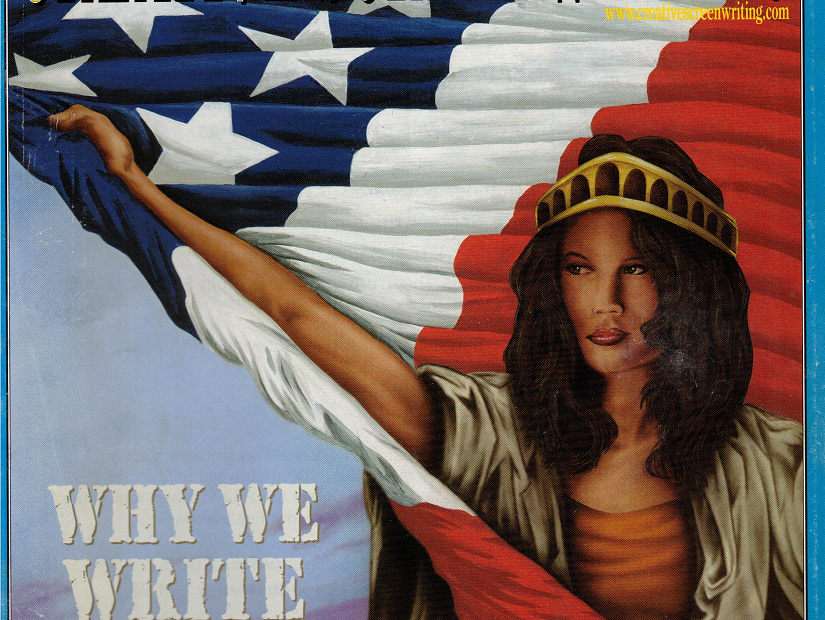This article originally appeared in the July, 2000, Number 10 issue of *spark.
Digital communications networks often have paradoxical effects. On the one hand, the Internet has given huge organizations the power to extend and/or consolidate an international reach. Supra-national groups such as the World Trade Organization, for instance, can better coordinate and police international trade policy thanks to instantaneous, world-wide communications. To use another example, transnational corporations are able to coordinate global sales efforts from their home base. The basic principle in both cases is that computer networks make it easier to control vast enterprises from a central location.
On the other hand, the Internet has given small organizations the ability to resist its centralizing powers. The protests in Seattle and Washington demonstrate this idea: international communication was employed to develop essentially local actions. The basic principle in this case (which appears a lot in business literature) is to bring groups of people together for small-scale, individual projects, have them disband once the project is over and have them come together in different configurations for the next project.
The seeming paradox is that digital communications facilitates both international and local action. It only appears to be a paradox, though: look a little deeper, and you find that in both cases, communication facilitates organization. Scale is irrelevant.
When confronted with such apparent contradictions, it always helps to remind ourselves of Alan Turing’s other important thought experiment. Turing, the British mathematician who is considered one of the parents of the modern computer, is perhaps best known for the “Turing Test” of artificial intelligence (“If it talks like a human being, for all intents and purposes it is a human being”). He also developed a theory for what has come to be called the “Universal Machine.”
Imagine a machine that runs on a set of discrete commands (“Add x to y,” “If a = b, go to command 27,” and so on). Turing’s insight was that any machine built to follow discrete commands could do the same thing as any other. Taken to its logical conclusion, if we could build an infinitely large machine, it could do anything that any smaller machine could do.
The computer (whether based on silicon or some other material) is the closest we are likely to come to a Universal Machine. Up to the limits of its memory (and setting aside the reality of proprietary systems), one computer can do anything another computer can do. Moreover, as computers become increasingly networked, their cumulative power makes them collectively behave more and more like a Universal Machine.
Those who are surprised at the rapidity with which computers are infiltrating modern society do not appreciate this aspect of the machines. We are now finding that large amounts of human experience can be reduced to discrete sets of logical commands, which brings them under the aegis of the Universal Machine. (Much is lost in this process, as anybody with a unique problem who has had to deal with computer-driven lists of phone options can attest. But that is the subject of another article!)
Contradictions in the way digital communications technologies are applied disappear when we understand that all contradictory behaviours are subject to the same kinds of discrete logical processes that make them part of the Universal Machine. This should be good news for local activists, since, all other things being equal, it gives them the same tools to organize as the largest institutions, whether corporations or governments.
For instance, take culture. On the one hand, monolithic corporations seem to dominate the world. AOL-Time Warner is the most obvious example of a company which sells cultural products in a wide variety of media to an increasingly global audience. The fact that America Online, a new media company, bought Time Warner, an old media company, emphasizes the idea that digital communications networks are central to its business.
At the other end of the spectrum there is the International Network for Cultural Diversity (INCD). The INCD, a non-partisan network of more than 160 countries from almost 30 countries, grew out of a 1998 UNESCO conference that recognized the threat to cultural diversity posed by globalization and recommended the creation of global networks to support cultural diversity. The INCD encourages governments to adopt policies and programs which support diverse artistic and cultural activities, which the organization believes is a fundamental part of human society.
The INCD recently launched a Web site as part of its organizing activities. The site includes discussion papers on the subject of cultural diversity, a list where individuals can add their input and information about the founding conference of the Network, which will take place in Greece in September 2000. (In the interests of full disclosure, I should say that I did some promotional work for the Web site.)
The two groups come into conflict at the level of international trade agreements. AOL-Time Warner benefits from the relaxation of trade barriers, which allows it to sell its products more easily throughout the world. The INCD argues that culture and the arts are too important to be left to market forces, that global corporations are undermining local cultures with their products. Its position, then, is that culture and the arts should be exempted from international trade agreements.
These are arguments which only rarely get heard in the mainstream media, which not only are ideologically pro-business, but, being large businesses themselves, have a considerable financial stake in the outcome of the debates. The Internet gives those whose interests conflict with these corporations the chance to be heard.
Hopefully, the best arguments will sway public policy.
Can’t get enough of *spark? For more intellectual stimulation, go to the source: *spark online.


